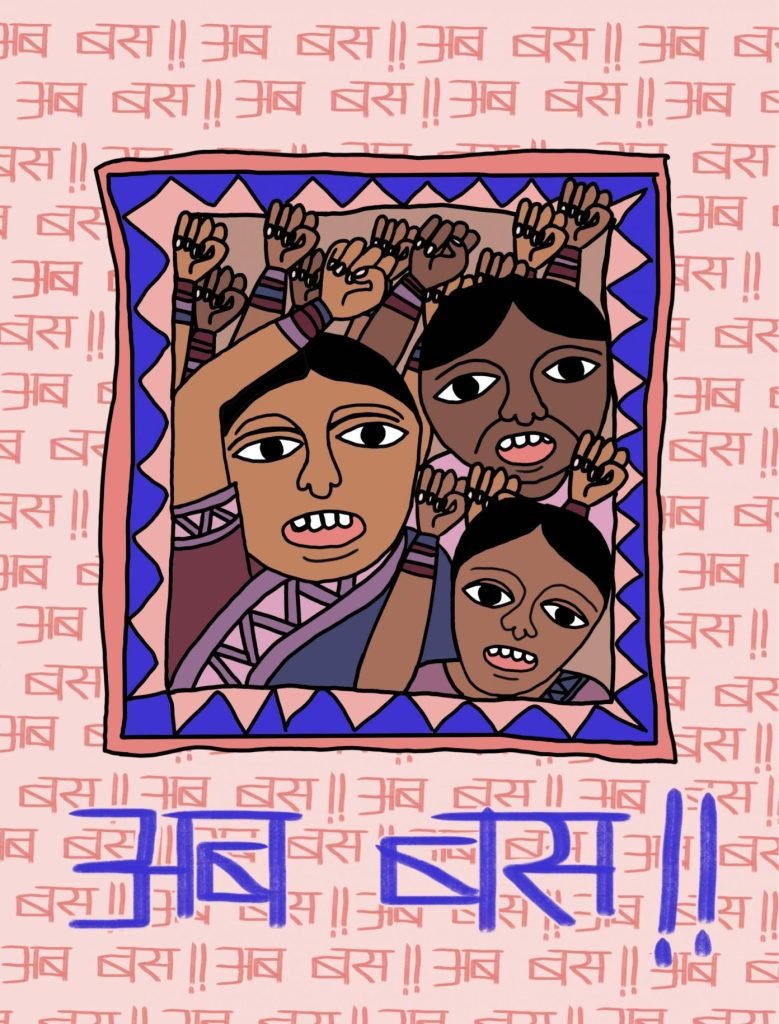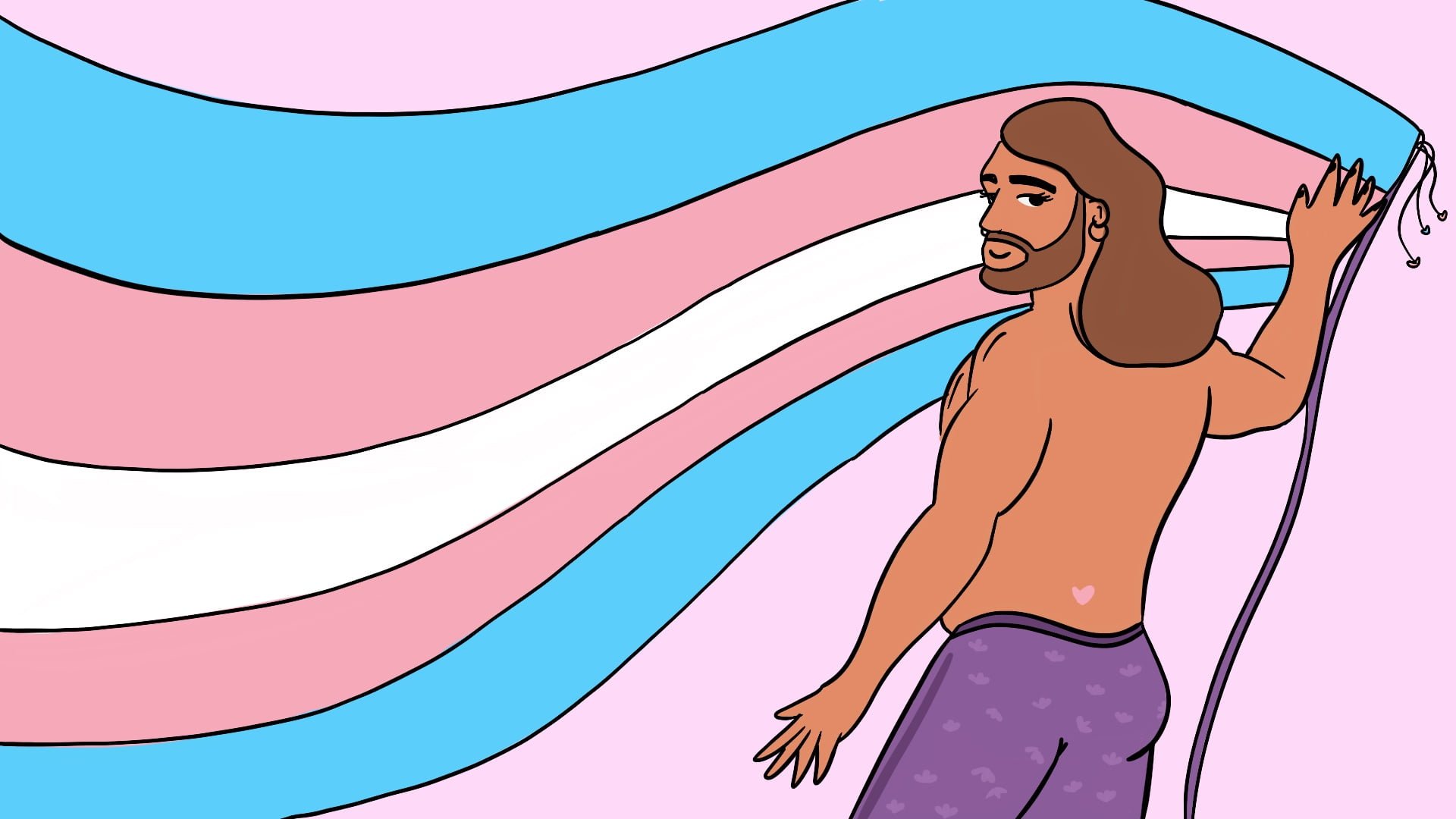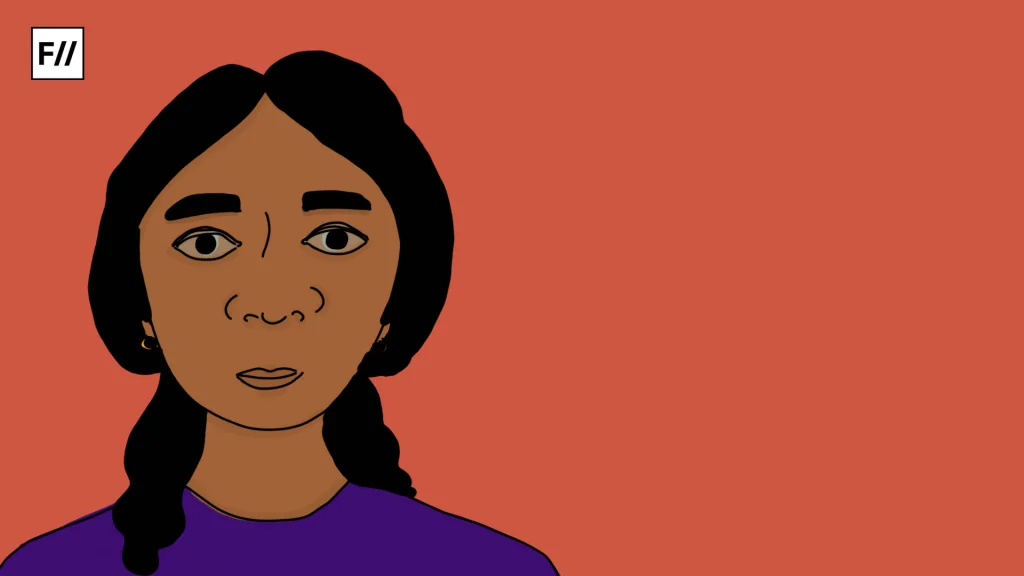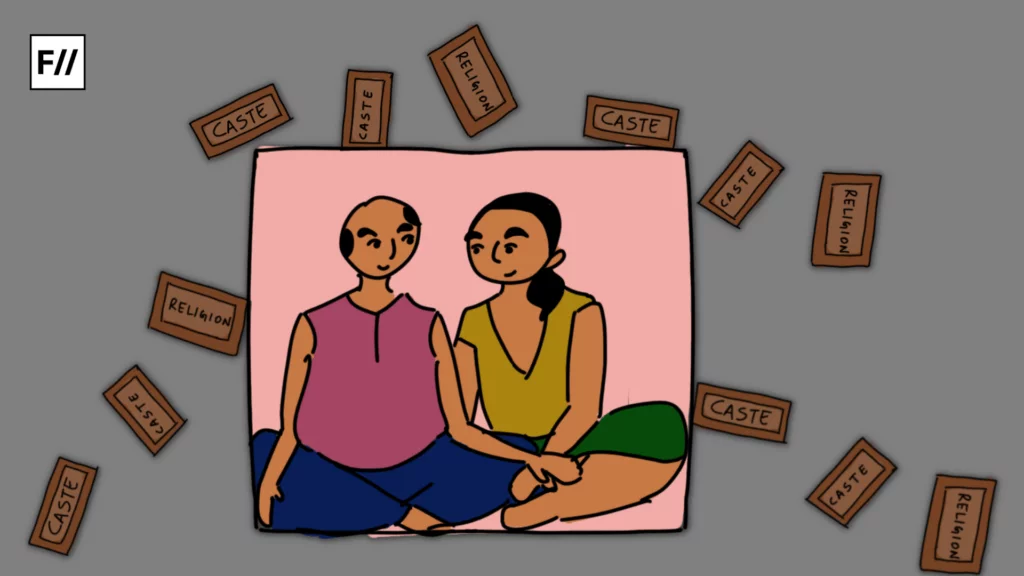Like everything else in this country, there is a hierarchy even in our righteous rage. Thousands flooded the streets of Kolkata and its suburbs on the eve of India’s 78th anniversary of “independence”. The protest invited women to reclaim the night in the wake of the brutal rape and murder of RG Kar’s resident post-graduate student, during her night shift. Citizens choked the streets, demanding justice for the victim.
Three days after the massive protest a trans woman was groped and assaulted by an RPF constable – to “check” her “gender”.
Only a month ago, with BNS replacing IPC, we saw the law leave behind men and trans persons who have survived rape. Under Section 63, the ambit of crimes amounting to rape is defined as a crime committed by a man on a woman. Three days after the massive protest a trans woman was groped and assaulted by an RPF constable – to “check” her “gender”. Barely a couple of mainstream news portals carried the news.
From Bahujan women to trans folx, the voices pushed to the fringe
On 20th August, Maharashtra’s Thane District saw massive protests against the alleged sexual abuse of two kindergarten girls. School building vandalised, stones pelted at police, 72 arrested by police – public outcry generally rides the biggest wave of the time. It is about time we mount a no-compromise movement against a patriarchal system – but are we seeking that? Would everyone join a battle cry against a system that abuses women standing at different intersections – gender, caste, and class?

The doubt in this nation’s feminist anger was strengthened on 14th August when a group of Bahujan women were ousted from a solidarity gathering by the women residents of Hiranandani Gardens, located in the upscale Powai area of Mumbai. The reason was clear – ‘Your issues are different from those raised here‘. Indian feminism has been caste-blind since its academic inception and continues to push the trans-feminist discourse to the fringe. The issues that do not serve the upper-caste, upper-class, cis-women of India hide the rot that infests this nation.
Last month, a 34-year-old choreographer from Mumbai was assaulted by an unidentified man, over a dispute concerning the electricity meter. In June, a woman in Vadodara was assaulted by the police when she tried to lodge a complaint about a dispute. In May, an injured woman was rescued from a five-star hotel on Kolkata’s EM Bypass – assaulted by her husband and friends. In February, two separate instances in Tamil Nadu and Telangana saw women beaten and assaulted under the suspicion of being child kidnappers.
The woman from Chennai was a techie while the woman from Telangana was a beggar – the latter succumbed to her injuries. But these headlines barely made it to the mainstream media noise – amidst myriad reasons one being that the survivors and victims were trans women. Amongst other assaults one of the specific crimes the queer folx of India are vulnerable to is conversion therapy. Despite the National Medical Commission (NMC) banning conversion therapy and categorising it as professional misconduct, this continues in India. Last month a case was reported from Kochi where a 19-year-old trans girl was subjected to harassment by the family and forceful conversion therapy.
Systemic violence and system’s violence against trans communities
The system’s lip service to the trans community belies the structural violence against the community. In September 2018, the Supreme Court read down Section 377 of the Indian Penal Code, decriminalising consensual homosexual acts. A month later a transgender woman filed a complaint against two police officials in Delhi’s Connaught Place – claiming she was raped by them in 2012 and was continually harrassed by them in the Capital’s prime business location.
The same year, three trans women were beaten up by Maharashtra Navnirman Sena (MNS) workers – one of whom even attempted suicide.
The same year, three trans women were beaten up by Maharashtra Navnirman Sena (MNS) workers – one of whom even attempted suicide. The case is of significance as they were not only assaulted for their gender but under the pretext that they were sex workers. Sexual assault of sex workers continues to be a shelved topic in public discourse despite the 2022 ruling by the Supreme Court of India that underlined their right to dignity and consent.
We are often advised to not resist the system but to change it from within. In many firsts, trans women have been joining the task force of the country’s law and order. Be it Padma Lakshmi, a lawyer, or R Nazriya, a police officer – they report a staggering pattern of workplace harassment. Earlier this year, Padma Lakshmi took a public stand against the transphobia and discrimination faced by transwomen in Indian courts. While Nazriya turned in her resignation last year due to the harassment she faced from her colleague – targeting her gender and caste.

The trans community continues to be a tight-knit family as the diversity of identities continues to be misunderstood, even in the cosmopolitan parts of the country. In 2022, a rescued transman was picked up by the police from one of Delhi’s few safe homes for the community. This followed the assault of trans folx from the NGO by the police. The same year another case in Kolkata highlighted the constant struggle of the trans community with the law enforcers of the State. The police not only deliver the patriarchal heteronormative justice as ordered by the families concerned but also show ignorance of basic human rights, gender, sexuality and identity.
Scrutiny, humiliation and erasure: marginalised gender communities in India living at the brink
The historic Transgender Persons (Protection of Rights) Act, 2019 was brought to end discrimination against trans folx in accessing education, employment, and healthcare. The most significant aspect of the law was the right to self-perceived gender identity. Yet the world’s obsession with the anatomy of anyone who is not a declared cis-man is astounding. While cis-women have been well advertised across all media, the resistance to the gaze is much more pronounced. Trans women and trans men undergo constant scrutiny and humiliation – with the public gaze seeking “gender proof”.
To add insult to injury, the country sentences a rape-accused ten years behind bars or more, unless the victim or survivor is transgender. The law states that the same crime against a trans person will result in the accused serving no more than a maximum of two years of prison time. Legal matters come into play once the cases are properly registered and the trans community has seen time and again that the law enforcers delay booking FIRs. In 2022 two trans activists were assaulted by Gurugram police but two weeks later FIR had not yet been lodged.
The 2022 NCRB report found over 4.45 lakh crimes against women were registered, bringing the average to one person every 51 minutes. In 2020 this data stood at 3,71,503 cases. In the same year, it was recorded that only 236 trans people were victims of gender-based violence. The last Indian census conducted in 2011 recorded 4.8 million transgender persons.
The National Portal for Transgender Persons has issued 15,800 identity cards to trans people while over 3200 applications are pending.
The National Portal for Transgender Persons has issued 15,800 identity cards to trans people while over 3200 applications are pending. The 3% of registered trans people are then subjected to systemic erasure as their lives and deaths go undocumented and under-reported. They are not only unsafe from the public, the State but a lot of the violence they face is at the hands of their families, partners, and leaders.

It is a momentous occasion whenever this massive country finds a common cause to rally behind. A feminist cause is a surprising but welcome issue but not when it is a selective outcry that is both tone-deaf and half-informed. As citizens take to the streets, demanding justice from the State, it is of utmost importance to voice the systemic exclusion of protection to vulnerable communities – especially trans folx.
The women and queer folx who are voicing their ire against the system – are not talking about anything different from the issue at hand. The Dalit family seeking justice for the daughter who was raped, the woman who feels unsafe sleeping on the pavement at night, and the transwoman who is kicking up a storm against the police who groped her to “check” her gender – are not outliers, but define the fight at hand. If we must commit to the fight against the patriarchal machine, it cannot be this perfunctory.
About the author(s)
She/they is an editor and illustrator from the suburbs of Bengal. A student of literature and cinema, Sohini primarily looks at the world through the political lens of gender. They uprooted herself from their hometown to work for a livelihood, but has always returned to her roots for their most honest and intimate expressions. She finds it difficult to locate themself in the heteronormative matrix and self-admittedly continues to hang in limbo




